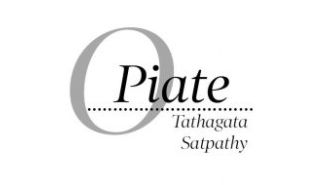This Memphis Hospital System Flouts IRS Rules by Not Publicly Posting Financial Assistance Policies
Nonprofit hospitals must post financial assistance policies for the public to see, including in emergency rooms. But Methodist Le Bonheur Healthcare’s five Shelby County emergency rooms had no signs or displays when a reporter checked.
MEMPHIS, Tennessee — Nonprofit hospitals across the country offer patients vastly different financial assistance with their bills, but one rule applies to all of them: They must publicize those policies in areas accessible to the public, including the emergency room.
When a person walks into a hospital, “you want to be able to see it,” said Marcus Owens, an attorney who used to run the IRS’ tax exempt organization division. “Having it on the underside of a desk wouldn’t be sufficient.”
But at Methodist Le Bonheur Healthcare’s five Shelby County emergency rooms, there were no signs on the walls or displays that made reference to financial assistance during visits a reporter made to the ERs between May 28 and June 1. The visits were a part of MLK50 and ProPublica’s examination of how Methodist aggressively uses the court system to pursue patient debts.
From 2014 through 2018, Methodist filed more than 8,300 lawsuits against patients, according to Shelby County General Sessions Court records. In interviews with dozens of people being sued by Methodist this year, not one of them said they were evaluated for charity care or financial assistance at the hospital.
The walls at each hospital are full of signs — about interpretation services, nondiscrimination and privacy policies, reminders to wash your hands. But nothing on charity care.
Below is a rundown of what was found at each hospital:
Le Bonheur Children’s Hospital: When exiting the main lobby, there’s a sign in a silver frame that said, “We Care About You,” and in smaller type, “Charity, Uninsured and Indigent Care.” The notice said that the registration staff could provide more assistance.
When asked, a registration desk staffer said she did not have any information but offered to call a hospital social worker.
Methodist University: No signs or displays. When asked, both a registration clerk in the ER and an employee at the information desk said they didn’t have a flyer, handout, brochure or any other information to provide.
Methodist North: No signs or displays. When asked, an ER staffer offered an application, which does not include eligibility requirements.
Methodist Germantown: No signs or displays. When asked, an ER employee gave a visitor an application, which does not include eligibility requirements.
Methodist South: No signs or displays. When asked, an ER registration clerk handed a visitor a piece of paper with a financial assistance application on one side and on the other, a notice stating that the hospital had “recently instituted a new discounting program for patients that have any medical insurance.” The clerk did not have any information about the discount program or the eligibility requirements.
Methodist did not respond to questions about whether information about the financial assistance policy was posted in its emergency rooms or whether that would be a violation of IRS tax laws.
But on a visit to one Methodist emergency room Wednesday evening, paper copies of the plain language summary of Methodist’s financial assistance policy in English and Spanish had been taped to the wall. The paper copies were in plastic sleeves, just inches away from permanent plaques.
Methodist also did not respond to multiple questions about the discounting program referenced by the handout at Methodist South. More information also was not available on the hospital’s website. There were no mentions of the discount in the last eight editions of Methodist South’s quarterly newsletter.
Because nonprofit hospitals are generally exempt from local, state and federal taxes, the federal government expects them to provide a significant community benefit, including charity care and financial assistance. More than half of U.S. hospitals are nonprofits, according to the American Hospital Association 2017 annual survey. In a 2015 journal article, researchers estimated the value of the hospitals’ tax exemption in 2011 at $24.6 billion.
Methodist pegs the community benefits it provides at more than $226 million annually.
Mark Rukavina, an expert in nonprofit hospitals and a manager at Community Catalyst, a health care advocacy organization, was surprised that Methodist’s ERs did not have information posted conspicuously, and that most ER and hospital employees had no information to share.
“That implies systems aren’t in place or staff aren’t properly trained,” Rukavina said.






